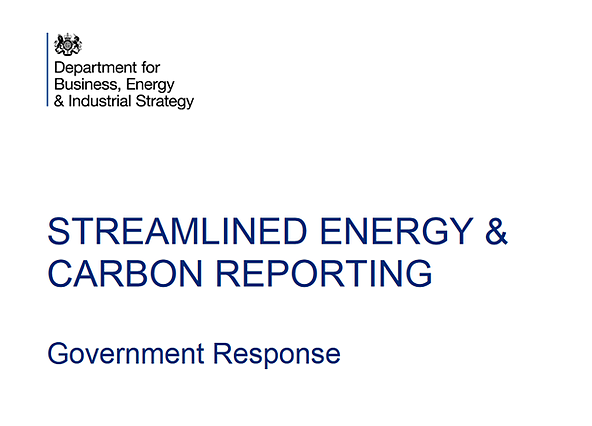SECR: evolution not revolution

The government has released its response to the consultation on streamlined energy and carbon reporting (SECR), and, as expected, is proposing that reporting will become mandatory throughout the UK. The purpose of the consultation was to recommend an appropriate framework for mandatory energy and carbon reporting in light of the winding up of CRC next year.
The proposal effectively merges and expands existing energy and GHG reporting requirements, integrating with annual company reporting processes and building in future convergence with TCFD recommendations.
The vast majority of affected companies should already have processes in place to report this information so it is not expected to represent a significant additional burden. Requirements for narrative information and reporting on intensities will provide some further insights on the performance of companies not already reporting to voluntary schemes with more extensive disclosure.
Coverage
In terms of scope the proposed approach will cover all large organisations as defined by the Companies Act, including LLPs. This means that approximately 12,000 organisations will report on energy and carbon. This compares to 4,000 under the CRC. A de minimis threshold of 40,000 kWh per annum means that large organisations who only occupy small office space will be exempt. The reports will need to be issued in the annual report, which should increase their rigour.
Significant changes
Possibly the most interesting addition to reporting will be the requirement to include narrative commentary on energy efficiency actions that have been carried out during the year. The Government has also encouraged businesses to report on the effectiveness of the energy and carbon strategy and the company’s exposure to climate related risks and opportunities as recommended by the Taskforce on Climate Related Financial Disclosures (TCFD). To really allow energy and carbon reporting to act as a driver for change, we would like to see this become mandatory in the future.
The inclusion of wider energy and transport emissions, rather than solely emissions from electricity and gas is a good step. Decarbonisation of heat is a pressing challenge for the UK and this data will help support the transition. It is also an area where data reporting has historically been weaker.
Our purpose
Verco's purpose is to provide the solutions for a zero-carbon world. To transition to a low-carbon economy, businesses need reliable data on their climate impact. In order to derive value from the SECR, organisations should use this process to drive strategic discussion within their operations on climate-related risks and opportunities.
For further information, please contact Christopher Hill
christopher.hill@vercoglobal.com
07824 636 048